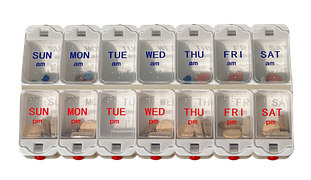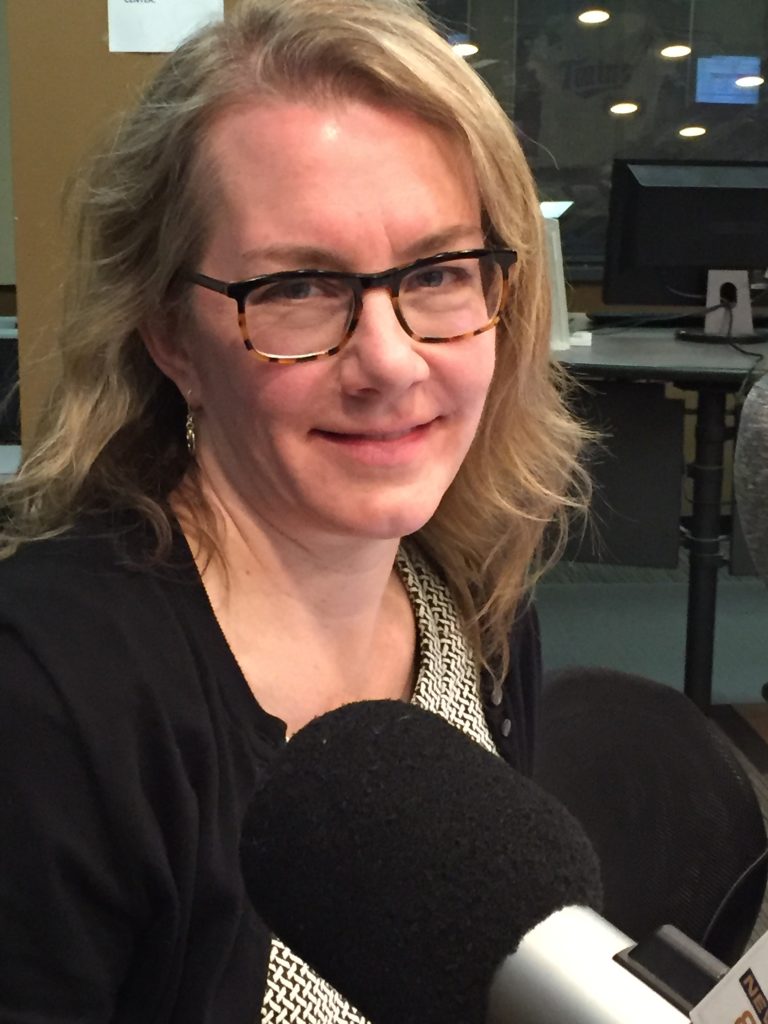 Every year or so I do an “Ask the Pharmacist” show on Healthy Matters. These are always popular shows with listeners and this week was no exception. Joining me in studio were two HCMC pharmacists, Laurie Wilhite and Erika Ridl. We answered questions from listeners about all kinds of medication topics.
Every year or so I do an “Ask the Pharmacist” show on Healthy Matters. These are always popular shows with listeners and this week was no exception. Joining me in studio were two HCMC pharmacists, Laurie Wilhite and Erika Ridl. We answered questions from listeners about all kinds of medication topics.
To hear the Q&A from our pharmacy show you may want to listen to the podcast here.
I learned a ton on Sunday’s show but two of the take home messages are 1) you are not alone if you have medication questions and 2) your pharmacist is most definitely your friend.
Actually, I hope to educate folks about one thing in this post: MTM (or Medication Therapy Management). Ever heard of it? I didn’t think so. Read on, read on.

Erika Ridl, PharmD & Laurie Wilhite, PharmD CSPI
I’d like to introduce our two PharmDs from the show, but before I do, what the heck is a PharmD?
PharmD is the term we throw around the hospital pretty much every day in the offices of our doctors. Here’s a conversation you may hear at any hospital:
Doctor A: “Hey, this patient is on 27 medications. Do you know if the statin is compatible with the seizure medication and are they both compatible with the heart drug and do I have to check a blood level for the blood thinner and if the patient eats a grapefruit is it going to matter?”
Doctor B: “Of course I don’t know. Why don’t you call the PharmD?“
OK, I totally made that conversation up but the point is real – doctors rely on PharmDs (which stands for “Doctor of Pharmacy” ) all the time.
Pharmacists and MTM
Here are my two guests from last week’s radio broadcast.
 Laurie is super well-trained. She’s done specialty fellowships, she is certified in Poison Information, and she has two jobs here at HCMC. She does part of her work in our Conservative Care Clinic which specializes in pain management. She also has expertise in the Poison Center (I did an earlier post about the Poison Center that you may want to check out). <–Click on her picture for more about Laurie and her practice.
Laurie is super well-trained. She’s done specialty fellowships, she is certified in Poison Information, and she has two jobs here at HCMC. She does part of her work in our Conservative Care Clinic which specializes in pain management. She also has expertise in the Poison Center (I did an earlier post about the Poison Center that you may want to check out). <–Click on her picture for more about Laurie and her practice.
Erika is a resident pharmacist, having finished Pharmacy School, then finishing one year of residency training, now doing another year of training in Ambulatory Care. She specializes in helping patients out in with their medications in the clinic (as opposed to when they are in the hospital). Click on Erika’s picture for more about her –>.
So what is MTM: Mary Tyler Moore?
Anybody from Minnesota of a certain age will remember Mary Tyler Moore. Sadly, I guess I am of a certain age since the first thing I think of when I see the initials MTM is our favorite fictitious newswoman. I can hear the words now . . .
“Who can turn the world on with her smile? Who can take a nothing day . . . and suddenly make it all seem worthwhile . . . well it’s you, girl, and you should know it. . . .”
OK, this is sad that I didn’t even have to look up the words to the MTM theme song. But I’ve totally gone off the rails here. Enough Mary Tyler Moore. What MTM really stands for is Medication Therapy Management.
MTM is perhaps not known to as many people as it should be. Even many of my doctor colleagues are a bit in the dark on it. Here’s what MTM is according to the American Pharmacists Association:
“Medication therapy management, also referred to as MTM, is a term used to describe a broad range of health care services provided by pharmacists, the medication experts on the health care team.”
MTM services can occur in any setting where you are a patient but I’m going to focus on the clinic setting. In a clinic that offers MTM services, the pharmacist is part of your health care team in a very real and integrated way. Basically this means that you, as a patient, can have a clinic appointment with a pharmacist just like you do with your doctor. The pharmacist can then work directly with your doctor, PA, or nurse practitioner, as well as the other staff in your clinic to assist you in getting the best health outcomes with your medications.
And MTM services are probably covered under your health plan. Click here to see what Medicare has to say about it (punch line – it is covered under many Medicare Part D drug plans but be sure to check your own plan first). Many other health networks automatically include MTM benefits for patients with several medications and/or medical conditions. Usually the service is billed through the clinic where you see your doctor.
An MTM visit focuses on your medications and is a chunk of dedicated time to discuss issues such as:
- Review all of your medications, including non-prescription over-the-counter (OTC) medications and herbal supplements
- Side effects questions
- Review your medications to look for potential drug-to-drug interactions
- Correct way to take your medications – time of day, with food or without, etc . . .
- Helpful tips on how to remember to take your medications
- Answer any other questions you may have about your medications
Are MTM services right for me?
“I believe the patient can become a better patient when they understand the importance of their medications and how they should be properly used. It’s one of the best kept secrets in health care.”
That is the sentiment from Gary Schneider who is the Director of the Medication Management Network at the University of Minnesota College of Pharmacy. He told me that the College of Pharmacy has over 300 credentialed pharmacists in the MTM network across the state of Minnesota.
Here at HCMC (my hospital), our Director of Pharmacy Mike Pitzl told me that he has well over 100 pharmacists on his staff and nearly 20 of them provide MTM services at a wide variety of HCMC-system clinics. The MTM program at HCMC started back in 2009. Click the link to see the range of services by pharmacists – cancer, HIV, cardiology, primary care, transplant, senior care, neighborhood clinics, digestive health, diabetes . . .
HCMC (my hospital), our Director of Pharmacy Mike Pitzl told me that he has well over 100 pharmacists on his staff and nearly 20 of them provide MTM services at a wide variety of HCMC-system clinics. The MTM program at HCMC started back in 2009. Click the link to see the range of services by pharmacists – cancer, HIV, cardiology, primary care, transplant, senior care, neighborhood clinics, digestive health, diabetes . . .
Going back to the American Pharmacists Association, MTM is potentially of benefit to “anyone who uses prescription medications, non-prescription medications, herbals, or other dietary supplements.”
Who benefits the MOST from MTM?
Look at the following and if these apply to you, you really ought to consider seeing if your clinic system offers MTM services:
You use several medications
If you take lots of medications it can get confusing. Do I take this pill with that one? Do I take them all at once or separately? At night or in the morning?. Does this blue one interact with that pink one? All great questions.
You have several health concerns
If you have diabetes and high blood pressure and depression and who knows what else, how can you keep track of which medication is for which purpose? How do you know if you are addressing each of your health conditions correctly? Common conditions that may benefit from MTM are diabetes, heart disease, depression, kidney disease, and lung disease, to name a few.
You have questions or concerns about medications
How many times have you gone into the doctor with questions about your bagful of medications and left still not quite sure of what it all means? You are not alone.
You take medications that require close monitoring
Maybe you are on blood thinners. Or seizure medications. Or something else that requires blood work or frequent visits to a clinic.
You have recently been hospitalized
Getting discharged from a hospital is a vulnerable time for anybody. Being in the hospital often brings with it changes made by the hospital doctors that are different from what you were taking before you went in. The names change, or the doses, or some medications are started and others stopped. It can be really hard to keep track of it all.
You get your medications from more than one pharmacy
Although most of us in the health care world discourage people from going to more than one pharmacy (getting your care at multiple locations is usually not such a good idea as it becomes challenging to keep track of everything), sometimes it is necessary. But if one pharmacy dispenses some of your meds and another dispenses some others, life can get confusing.
A Medication Therapy Management (MTM) visit can help address ALL these issues. It is true “team-based care”!
